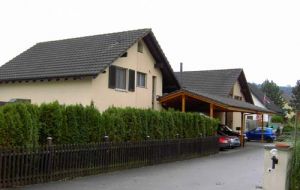MercoPress. South Atlantic News Agency
House crisis contagion expands world wide: prices keep falling

House prices dropped further around the world during the year to end March 2009, as personal consumption expenditure decreased, consumer confidence remained low, credit remained tight and the unemployment rate worsened, property researchers the Global Property Guide said.
The housing crisis contagion reached more countries: among the 32 countries in the Global Property Guide’s survey of house prices, 27 recorded price falls during the year to the end of the first quarter of 2009, in real terms.
The Global Property Guide uses price-changes after inflation, giving a more realistic picture than the (more upbeat) nominal figures usually preferred by real estate agents. During the year to end-Q1 2009, price falls of more than 10% occurred in 12 countries, worse than the previously worst-ever year to end of last quarter of 2008 (8 price falls above 10%).
However, only 7 countries saw price falls of above 5% during the single quarter (i.e., Q1 2009), versus 8 countries during the previous quarter (though some individual price declines were much higher during this quarter than in the previous quarter).
Latvia is in surprisingly deep trouble. Average apartment prices in Riga declined an astonishing 50% over a year earlier, to €747 per square meter, with a 30% drop during the quarter. Latvia is in deep recession, with its economy contracting 18% in Q1 2009.
Dubai’s house prices dropped 35% over a year earlier, and 42% over a quarter earlier. Dubai’s economy is closely tied to the global market. As uncertainties piled up, demand for properties collapsed. Many developers have delayed or postponed construction of projects. Credit has also been tight. Interest rates have increased, and loan-to-value ratio reductions have been imposed.
Among Asian countries, Singapore housing market suffered the most. House prices plunged 23% in real terms over a year earlier, and 13% over a quarter earlier. This is the biggest decline since 2000. Singapore is heavily dependent on exports. When the global financial crisis began, demand waned. In Q1 2009, Singapore’s economy contracted by 10.1%, mainly due to a decline in manufacturing production.
There is no clear sign of recovery in the United States housing market. The S&P/Case-Shiller House price index dropped by 19% (inflation-adjusted) to end-Q1 2009 over a year earlier. Case-Shiller’s figures also show a larger decline in the first quarter of 2009 (6.5%) than during the last quarter of 2008 (4.5%). Despite the grim situation in the global market, a number of countries have remained resilient.
Switzerland’s house prices rose by 4% to end-Q1 2009 over a year earlier. The decrease in interest rates and a surge in the number of foreign residents, kept property demand stable.
House prices in Thailand, Austria and Israel bounced back during the year to end-Q1 2009. In Thailand, price of single detached houses with land are up 4% in Q1 2009 compared to the same period last year. This is the first increase since 2006. National house prices in Austria are up 3%, after falling by an average of 3% in 2008. House prices in the capital, Vienna, have continued their upward trend, rising nearly 3% during a single quarter, in Q1 2009. After consecutive falls in the last two quarters of 2008, Israel’s house prices rose 3% in Q1 2009.




Top Comments
Disclaimer & comment rulesCommenting for this story is now closed.
If you have a Facebook account, become a fan and comment on our Facebook Page!